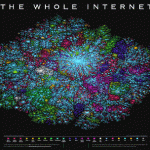Some Quotes from the Internet
 Boze Herrington gives us a heart-rending account of his involvement in a prayer group (associated with the International House of Prayer) that evolved into a dangerous cult. The account centers around the death of the cult leader’s wife (Boze’s friend) Bethany. He writes: “But it is clear that when Bethany died, she was part of a community shrouded in fear and hatred, a community where those who spoke out were treated as though they didn’t exist. Their loves, desires, opinions, feelings, and whole personalities were invalidated, all in the name of God.” At The Atlantic here: The Seven Signs You’re in a Cult.
Boze Herrington gives us a heart-rending account of his involvement in a prayer group (associated with the International House of Prayer) that evolved into a dangerous cult. The account centers around the death of the cult leader’s wife (Boze’s friend) Bethany. He writes: “But it is clear that when Bethany died, she was part of a community shrouded in fear and hatred, a community where those who spoke out were treated as though they didn’t exist. Their loves, desires, opinions, feelings, and whole personalities were invalidated, all in the name of God.” At The Atlantic here: The Seven Signs You’re in a Cult.
Jonathan Merritt on the public’s response to Christian leaders: “The point is that people don’t like mean people and judgmental people and power-hungry people, regardless of their religion. Most people dislike Christian jerks because they are jerks, not because they are Christian. (According to a 2013 Barna poll, about 51% of self-identified Christians are characterized by having the attitudes and actions that are “Pharisaical” as opposed to “Christlike.”)” Here: What the Pope’s popularity says about American culture.
British comedian Russell Brand on what he likes about religion and what he dislikes about Richard Dawkins: “But I do think it’s good to have a system that connects the known and the unknown and for us to have a ritualized way of understanding the limitations of our own perspective and embracing ideas that are beyond our consciousness. And that’s what religion’s meant to be for me. And ol’ Dicky Dawkins, with his way of judging the world, prevents the positive things about religion. And I think if we eschew those positive things, then we ain’t got any chance of countenancing [sic] the materialistic ideologues that currently govern us. You know like governments, big corporations and that. So I think religion might be a way of circumnavigating them. I don’t think we can do it with old leftist ideas or old revolutionary notions. I don’t think they work anymore… But what I’m saying is part of it is a sense of spiritual connection… I’m just pointing out that that sort of scientific dogmatism and materialism actually shares quite a lot with the aspects of religion that they claim to dislike, like being sort of quite judgmental and limiting and all that kind of stuff. And anti-mystical. I don’t like it.” At Joel L. Watts blog here: Quote of the Day: Russell Brand on (Dawkin’s) atheism and religion.
Kurt Willems gives us an account of all those John Piper is against (including Greg Boyd, N.T. Wright, Rob Bell, and Burger King) and wraps up by saying: “What if there’s a better way? What if we Christians chose a posture of theological humility and love – trusting that the Holy Spirit is at work within those of whom we disagree? Of course, there are limits to such a posture, but we need generous spaces in which to define Christian theology, not narrow ones. Again, I think the Creeds offer helpful boundaries. What if we Christians chose to approach culture, not as their condemners, but as those who are FOR them. We are FOR human flourishing. We are FOR love. We are FOR equality. We may not all agree about our theology of sin…, but we can choose to live together as a people known for building bridges into culture instead of building walls against it. Isn’t this what Jesus modeled? He never said “good-bye” to those who were labelled as “other.” Actually, Jesus partied with such people and allowed his presence in their midst to shape their common experience. Jesus said “hello” much more often than he said “good-bye.”” Here: #FarewellJohnPiper? – What Boyd, Wright, Bell, and Whoppers Have in Common.
 Benjamin L. Corey on the being a Christian and being a Jesus follower: “First, I’m not a fan of saying who is or who is not a Christian– it’s a big religion with lots of different expressions, and I’m the last person qualified to be a gatekeeper of who is allowed to use the term. Secondly, some have suggested we stop using the term altogether, which I’m not a fan of either. “Christian” is a beautiful term from our early days of a faith tradition, and you’re not going to see my name on the list of people who think we just dump it. However, I do think the term “Jesus follower” is a more helpful term to interject into the conversation. While “Christian” can mean a million different things, “Jesus follower” is a little more definable because by definition, this would be an individual who is living a life that follows the example we find in Jesus. I’m proud to be a Christian, but I long to be a Jesus follower. It’s what I strive for. It’s what I want to be when I grow up. It’s what this movement was all about.” Here: 5 Ways You Can Spot A Jesus Follower.
Benjamin L. Corey on the being a Christian and being a Jesus follower: “First, I’m not a fan of saying who is or who is not a Christian– it’s a big religion with lots of different expressions, and I’m the last person qualified to be a gatekeeper of who is allowed to use the term. Secondly, some have suggested we stop using the term altogether, which I’m not a fan of either. “Christian” is a beautiful term from our early days of a faith tradition, and you’re not going to see my name on the list of people who think we just dump it. However, I do think the term “Jesus follower” is a more helpful term to interject into the conversation. While “Christian” can mean a million different things, “Jesus follower” is a little more definable because by definition, this would be an individual who is living a life that follows the example we find in Jesus. I’m proud to be a Christian, but I long to be a Jesus follower. It’s what I strive for. It’s what I want to be when I grow up. It’s what this movement was all about.” Here: 5 Ways You Can Spot A Jesus Follower.
Tyler Francke writes about people who don’t really understanding the views they oppose: “When I’m talking with atheists or agnostics who are passionately against any and all religion, I sometimes find that they have inaccurate (or just plain wrong) ideas about the teachings of the Bible, the nature of the Christian faith and the qualities of the God I believe in. In other words, some of those whom I’ve encountered have a poor understanding of the very thing they think they oppose. And I’ve found that the same is often true of anti-evolutionists — in my experience, anyway.” Here: The top 10 signs that you don’t understand evolution at all.
Frederick W. Schmidt of Garrett-Evangelical Theological Seminary critiques the theology of Marcus J. Borg: “That a preacher’s careful assessment of Marc’s work might raise questions about an uncritical embrace of Progressive Christianity should be no surprise. The problems with that apologetic help to explain why Progressive Christianity has struggled to capture the hearts and minds of those who are spiritual but not religious and why it largely remains a movement dominated by the Boomer Generation. An approach to the Christian faith that lionizes modernity’s conceits and reduces the Christian faith to a series of metaphors describing a largely political undertaking is finally without a good reason for religion, never mind God. All Christians should suffer a frisson of warning whenever their faith commitments make them more comfortable with themselves and the world around them.” Here: Protagonist Corner, Journal for Preaching.
Michael Root, professor of theology at the Catholic University of America writes this about the theology of Wolfhart Pannenberg: “Distinctive in his theology is the commitment to the claim that the Christian metanarrative, the all-encompassing, eschatologically focused story, is the key to the meaning of each and every thing. Theology backs up that claim by presenting a comprehensive, systematic account of reality in which all other knowledge can find a home. Pannenberg’s project required that his works culminate in a systematic theology. The revelation of God in Christ is either the one truth in relation to which all things makes sense, or it is false. If that revelation is true, then “[e]very single reality should prove incomprehensible (at least in its depth) without recourse to God.” The theologian’s task is to make that truth evident by showing, at least illustratively, the explanatory power of the Christian perspective.” Here: The Achievement of Wolfhart Pannenberg.
Thomas C. Upham (1799–1872) on loving our enemies: “It will be noticed, that we are not commanded to love their enmity,— to love their detractions and ill usage, — but to love that which has enmity; the subject rather than the attribute; namely, their existence, their immortal natures. In the exercise of holy love, we may not only forgive them, but may earnestly seek their happiness; while, at the same time, we condemn their characters. Their characters may change, but not the essence of their being. Their enmity may die, but their nature is eternal.” Here: Loving Our Enemies.
Daniel Steele (1824-1914) on the atonement: “We may not be able to state correctly the philosophy of the atonement on its Godward side, showing in what way he is affected by the death of his Son. But the saving efficacy of the atonement does not depend on our perfect philosophy, but on that faith which inspires love, imparts spiritual life, overcomes the world, and purifies the heart. The Father is grossly misrepresented when he is represented as a pitiless and vengeful Shylock demanding his pound of flesh, while his Son is the sole embodiment of mercy. The Father originated the atonement and himself suffered in the gift of his well-beloved Son beyond all possible conception by men or angels. Suffering is the highest proof of love. To say that the gift of his Son to the manger and the cross did not wring the heart of the Father with the keenest anguish, is to strip him of every proof of love to a world of sinners.” Here: The Cross of Christ and Human Sin.












